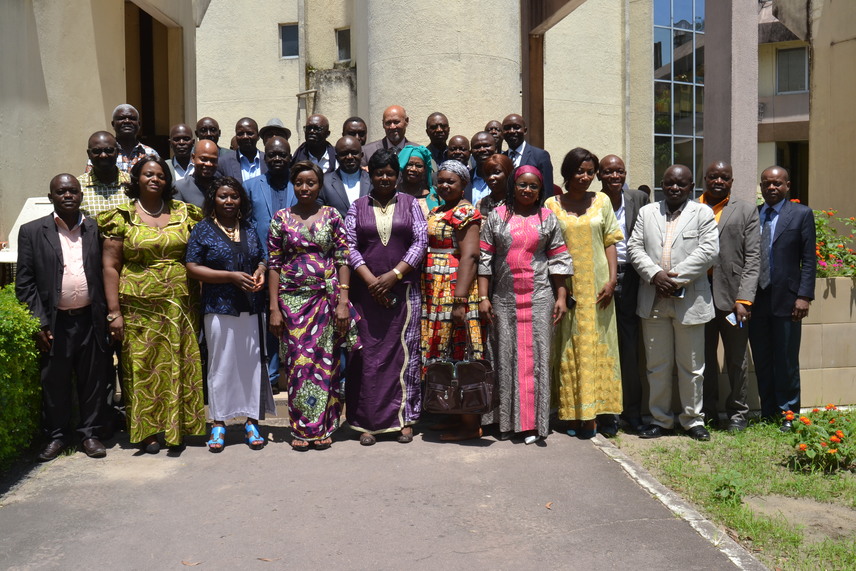"We must admit that the task we have ahead of us is complex, but I remain convinced that through the pertinence and seriousness of our analyses, we will implement large-scale actions related to IWRM. ». It is with these terms that Mr Nicolas LABARRE, Chair of the PNE Congo opened the work of the second General Assembly of the PNE Congo, on 18 April 2018 in Brazzaville, Congo. Indeed, to conform to the texts in vigour and anxious to play the role of promotion of IWRM in the Republic of Congo, the Partners of the PNE Congo have committed themselves to relaunch the activity of their Institution and to devote a new beginning to it. The General Assembly was thus attended by public and private institutions and civil society organizations involved in integrated water resources management (IWRM).
With the aim of revitalising the PNE with a view to promote IWRM in the Republic of Congo, the General Assembly was furnished with six (6) presentations, which formed the core of the work in plenary and enabled the speakers to present IWRM, the conditions and the process of accreditation of a PNE, the status of the PNE Congo since its creation in 2008. Following presentations, the work plan, statutes and rules of procedure of the PNE were examined and unanimously adopted by the partners following productive exchanges.
Following the instruction of the Coordinator of the GWP-CAf present during the work, to identify quality members capable of doing priesthood work, the participants proceeded to the election of the members of the Steering Committee, composed as follows:
- Chairman: Mr Nicolas LABARRE – DGH
- Vice-President: Mrs Georgette INGANI - EAA
At the end of the general assembly, the following recommendations were adopted regarding the partners: (1) putting on hold the payment of the membership fees until the successful opening of the PNE-Congo bank account and (2) the proposal of internships at the GWP-CAf office for Congolese students working on topics related to IWRM and who are under study on Cameroonian territory.
Out of the work, the participants expressed their positive appreciation of the relevance of the themes addressed and the pedagogical approach used by the facilitators, and hope that the recommendations formulated will be implemented to ensure the sustainability of the PNE-Congo.
